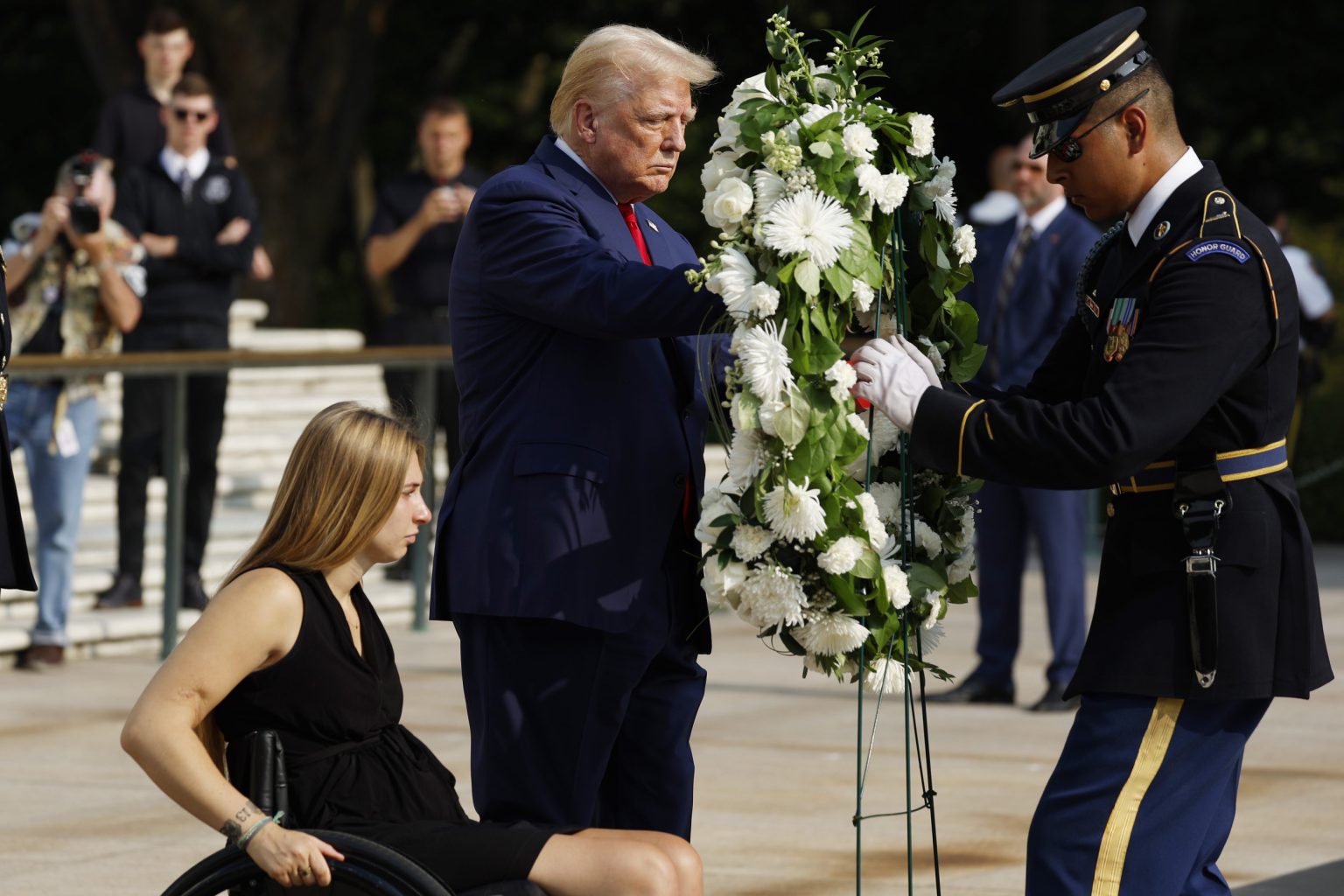Donald Trump campaigned at an event marking the third anniversary of the Abbey Gate bombing in Afghanistan, where he laid a wreath at Arlington National Cemetery. Trump was confronted for campaigning at the event, as federal law prohibits political campaign activities within Army National Military Cemeteries. This led to an altercation between Trump’s team and the cemetery staff, with reports of a “verbal and physical altercation.” However, Trump’s campaign denied these claims, stating that there was no physical altercation and that they had prior approval to bring a campaign photographer and videographer into the event.
Despite the controversy surrounding Trump’s presence at the event, he shared a letter of support from some of the families of soldiers who died in the Abbey Gate bombing. The letter praised Trump and his team for conducting themselves with respect and dignity for the service members. The family members expressed gratitude to Trump for honoring their children and standing with them in their grief. This gesture from the families served to highlight the positive impact Trump’s presence had on them during such a difficult time.
The wreath-laying ceremony at Arlington National Cemetery was a solemn occasion commemorating the attack outside Kabul’s Hamid Karzai International Airport in 2021. The incident resulted in the deaths of 13 American service members and approximately 170 Afghan civilians. Trump’s participation in this event sparked controversy due to the nature of the location and the timing, as it was seen as inappropriate to engage in political campaigning at such a somber event. The incident has raised questions about the boundaries of political activities within military cemeteries and how they should be enforced in the future.
Arlington National Cemetery confirmed that an incident took place during the wreath-laying ceremony and that a report was filed. The cemetery reiterated the prohibition on political campaign activities within military cemeteries and the need to respect the solemnity of such occasions. Despite this, the family members of the fallen soldiers expressed their support for Trump and his team, stating that they had given prior approval for the campaign photographer and videographer to be present. This conflicting information adds layers to the controversy surrounding Trump’s involvement in the event.
Trump’s campaign spokesman, Steven Cheung, defended the team’s actions and refuted claims of a physical altercation. Cheung stated that a private photographer was permitted on the premises and that an individual, possibly suffering from a mental health episode, had blocked members of Trump’s team during the ceremony. He suggested that footage could be released to debunk the claims of a physical altercation. The incident highlights the challenges of navigating political activities in sensitive and sacred spaces, such as military cemeteries, and the need for clear guidelines and enforcement measures.
In conclusion, the controversy surrounding Donald Trump’s presence at the event marking the third anniversary of the Abbey Gate bombing in Afghanistan has sparked debate over the appropriate boundaries for political activities in military cemeteries. The conflicting accounts of the incident, the family’s letter of support, and the response from Trump’s campaign spokesperson shed light on the complexities of engaging in political activities in such solemn settings. Moving forward, there is a need for greater clarity and adherence to regulations to ensure that the sanctity of military cemeteries is maintained while also respecting the rights of individuals to commemorate and honor those who have made the ultimate sacrifice.


